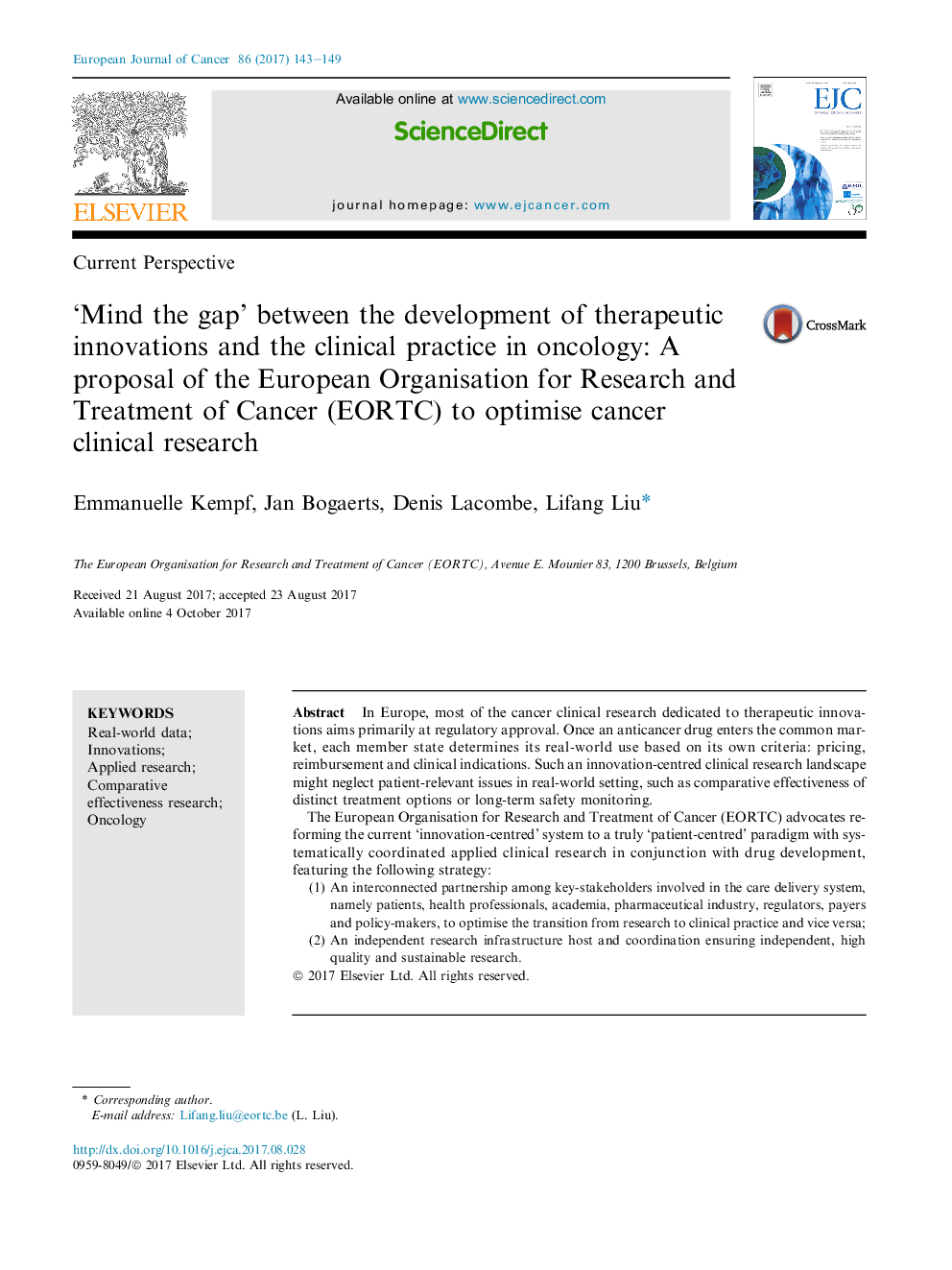| Article ID | Journal | Published Year | Pages | File Type |
|---|---|---|---|---|
| 5526171 | European Journal of Cancer | 2017 | 7 Pages |
â¢The limits and the consequences of the current development of anticancer therapeutic innovations in Europe.â¢The EORTC advocates for a paradigm shift from an 'innovation-centred' to a truly 'patient-centred' approach.â¢The new paradigm features interconnected partnership among stakeholders and independent research infrastructure coordination.
In Europe, most of the cancer clinical research dedicated to therapeutic innovations aims primarily at regulatory approval. Once an anticancer drug enters the common market, each member state determines its real-world use based on its own criteria: pricing, reimbursement and clinical indications. Such an innovation-centred clinical research landscape might neglect patient-relevant issues in real-world setting, such as comparative effectiveness of distinct treatment options or long-term safety monitoring.The European Organisation for Research and Treatment of Cancer (EORTC) advocates reforming the current 'innovation-centred' system to a truly 'patient-centred' paradigm with systematically coordinated applied clinical research in conjunction with drug development, featuring the following strategy:(1)An interconnected partnership among key-stakeholders involved in the care delivery system, namely patients, health professionals, academia, pharmaceutical industry, regulators, payers and policy-makers, to optimise the transition from research to clinical practice and vice versa;(2)An independent research infrastructure host and coordination ensuring independent, high quality and sustainable research.
